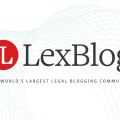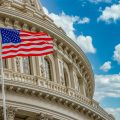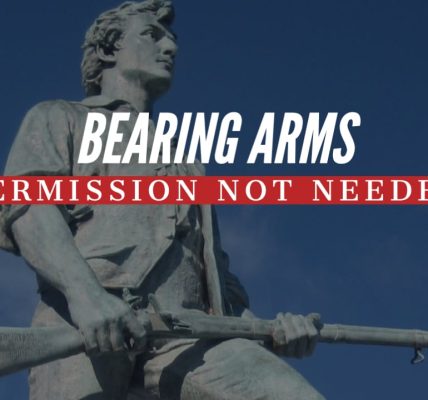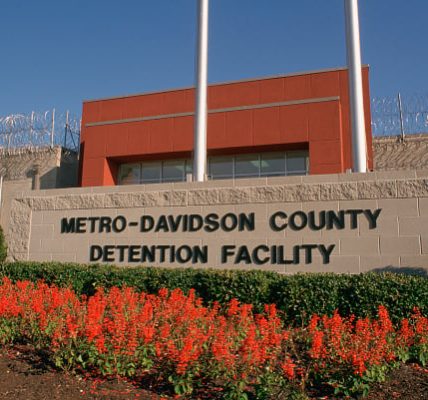Thomas Jefferson called the 10th Amendment the “foundation of the Constitution,” and for good reason too. It enshrines many of the radical principles that sparked the “real American Revolution” in the years before the War for Independence.
John Adams noted that this “radical change in the principles, opinions, sentiments and affections,” along with a “change in their Religious Sentiments, of their Duties and Obligations” made up the “real American Revolution.”
Here are five core principles that form this foundation.
1. All Power is from the People
One of the primary ideas that underwent a revolutionary shift in the years leading up to independence was the conception of where power comes from.
The British system was based on the “divine right of kings.” In effect, the monarch was not accountable to any earthly authority. His right to rule was derived from divine authority, so he could effectively do as he pleased.
The American colonists embraced a different idea. George Mason summed it up this way in the Virginia Declaration of Rights.
“All power is vested in, and consequently derived from, the people.”
This conception of sovereignty was developed by several thinkers who were extremely influential on the founding generation. For instance, Algernon Sidney wrote, “All just Magistratical Power is from the People.”
During the Pennsylvania ratifying convention, James Wilson made the same argument, saying, “The supreme power resides in the people.”
During the New York ratifying convention, Robert Livingston proclaimed that the people of the United States had a greater chance to live in peace because they “acknowledge the same great principle – that all power is derived from the people.”
2. Sovereignty Is in the People
Since the source of power is from the people themselves, it logically follows that they are sovereign. In other words, they wield ultimate and final power and authority.
Under the British system, the government was sovereign. As Sir Francis Bernard summarized this British conception of government power, it was “absolute, uncontrollable, and accountable to none.”
He went on to insist that the government “in a political sense can do no wrong.”
One of the principal arguments made by the colonists in the years leading up to the revolution was that sovereignty wasn’t in the king, Parliament, or any part of the government. It was in the people.
In The Rights of the British Colonies Asserted and Proved, James Otis Jr. acknowledged that “an original supreme sovereign, absolute, and uncontrollable earthly power must exist in and preside over every society; from whose final decisions there can be no appeal but directly to Heaven.” But he insisted “It is therefore originally and ultimately in the people.”
In his Dissertations on Government, Thomas Paine contrasted the American view that the people are sovereign with the British belief in a sovereign government.
“IN despotic monarchies (such as the British government) power is lodged in a single person, or sovereign. His will is law; which he declares, alters or revokes as he pleases, without being accountable to any power for so doing.
On the other hand, he wrote:
“IN republics, such as those established in America, the sovereign power, or the power over which there is no control, and which controls all others, remains where nature placed it-in the people; for the people in America are the fountain of power.”
James Wilson affirmed this same view during the ratification debates:
“The truth is, that, in our governments, the supreme, absolute, and uncontrollable power remains in the people. As our constitutions are superior to our legislatures; so the people are superior to our constitutions.”
In Federalist #78, Alexander Hamilton supported this view as well:
“To deny this, would be to affirm, that the deputy is greater than his principal; that the servant is above his master; that the representatives of the people are superior to the people themselves; that men acting by virtue of powers, may do not only what their powers do not authorize, but what they forbid.”
This conception of sovereignty supports the entire constitutional system. The sovereign people formed a government and it is limited to the powers they delegated to it.
3. Government is an Agent of the People
If the people are sovereign, and thus, all power flows from them to the government, it naturally follows that government only acts on their behalf. In other words, government is the people’s agent, not their ruler.
In legal terminology, this is called agency. In simplest terms, the federal government under the Constitution – the agent – was created to serve the people of the states.
But this wasn’t a new idea.
In 1765 James Otis Jr. summed up this Lockean view.
“The trustees council or senate, so chosen are in fact representatives of and agents for the whole society. If the society agrees to have but one trustee, representative or agent, he is a monarch. If they make choice of a council or senate, they are joint agents, trustees or representatives of the whole community. Upon so simple a principle are all governments originally built.”
In the Virginia Declaration of Rights, Mason followed his assertion that power is in the people by saying, “magistrates are their trustees and servants and at all times amenable to them.”
In a pamphlet published in support of ratification, future Chief Justice John Jay explained the idea of agency in more detail.
“The proposed government is to be the government of the people: all its officers are to be their officers, and to exercise no rights but such as the people commit to them.” [Emphasis added]
He went on to explain that “the Constitution only serves to point out that part of the people’s business, which they think proper by it to refer to the management of the persons therein designated.”
Those persons do not work for themselves or even the government, “but as agents and overseers for the people, to whom they are constantly responsible, and by whom only they are to be appointed.”
During the North Carolina ratifying convention, James Iredell proclaimed that “the people are known with certainty to have originated [government] themselves,” and, “Those in power are their servants and agents.”
Patrick Henry perhaps summed it up best during the Virginia ratifying convention.
“The governing persons are the servants of the people.”
4. Government Power Must Have Defined Limits
If the people are sovereign and government magistrates are their agents, it follows that government power must be limited.
In the view of the American Revolutionaries, a government that could exercise whatever power IT decided on was claiming “arbitrary power.” That’s how they defined tyranny.
As James Otis, Jr. described it, arbitrary power “in plain English means no more than do as one pleases, and he referred to it as the “curse and scandal of human nature.”
In a letter to James Warren in 1780, Samuel Adams wrote, “Power without restraint is tyranny.”
Both Adams and Otis reflected the Lockean idea that if the legislative power was derived from the people “by a positive voluntary grant and institution,” then the government “can be no other than what that positive grant conveyed.”
Arbitrary power was also included as one of the injuries and usurpations in the Declaration of Independence.
During the ratification debates, A Maryland Farmer wrote, “All human authority, however organized, must have confined limits, or insolence and oppression will prove the offspring of its grandeur.”
Brutus warned that “power, lodged in the hands of rulers to be used at discretion, is almost always exercised to the oppression of the people, and the aggrandizement of themselves.”
And Luther Martin noted, “By the principles of the American revolution, arbitrary power may and ought to be resisted”
5. It’s Up to the People
This spirit of resistance was present long before a shot was fired in the War for Independence.
In 1767, James Otis Jr. urged the colonists to defend their rights under the British Constitution, writing that it was “of the utmost consequence that we boldly oppose the least infraction of our charter, and rights as men.” He went on to say “Obsta Principiis”(resist the first encroachment) is “a maxim never to be forgot.”
“If we do not resist at the first attack, it may soon be too late.”
Writing as Candidus in the Boston Gazette in 1771, Samuel Adams asserted, “All might be free, if they valued freedom, and defended it as they ought.” [Emphasis added]
In other words – the people themselves keep the government in check
Carrying this view forward to ratification – the Founders broadly understood that words on paper don’t enforce themselves. Never did and never will.
John Dickinson made the case that “a good constitution promotes, but not always produces a good ad-ministration.”
Writing in Federalist 48, James Madison agreed:
“A mere demarkation on parchment of the constitutional limits of the several departments, is not a sufficient guard against those encroachments which lead to a tyrannical concentration of all the powers of government in the same hands.”
Just days later, John Hancock told the Massachusetts Ratifying Convention that “The powers reserved by the people render them secure.”
Of course, that means the people have to actually use those powers to get the job done and render themselves “secure.”
Dickinson continued this line of thought, asking “what is then to be done?” in response to a bad administration.
The answer, “is instantly found,” he wrote, “before the supreme sovereignty of the people.”
“IT IS THEIR DUTY TO WATCH, AND THEIR RIGHT TO TAKE CARE, THAT THE CONSTITUTION BE PRESERVED; Or in the Roman phrase on perilous occasions—TO PROVIDE, THAT THE REPUBLIC RECEIVE NO DAMAGE.”
According to James Iredell, the people taking a stand is the only way to deal with a government that doesn’t stay within its constitutional limits.
“The only resource against usurpation is the inherent right of the people to prevent its exercise.”
As Samuel Adams noted above, this requires a people who not only love and value freedom – but are also willing to do what it takes to defend it.
CONCLUSION
These five principles from the “real American Revolution,” are not only enshrined as the backbone of the 10th Amendment, they make up, as Thomas Jefferson put it, the “foundation of the Constitution.”
They serve as a constant reminder that power and sovereignty reside with the people, and government only acts as their agent. Ultimately, it is up to the people to keep things in check, whether the government likes it, or not.
Mercy Otis Warren may have summed it up best, “The origin of all power is in the people, and they have an incontestable right to check the creatures of their own creation.”







